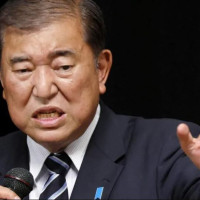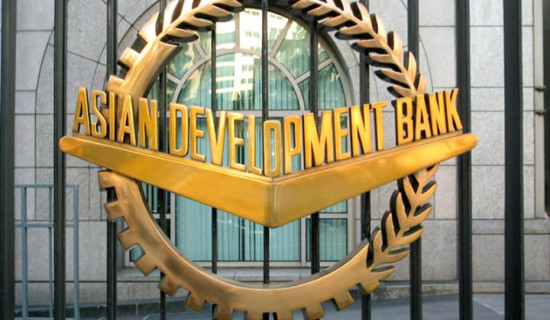- Monday, 28 October 2024
Children adopted by Americans are without citizenship
Henderson, Nev., Oct. 27: The 50-year-old newspaper was turning yellow and its edges fraying, so she had it laminated, not as a memento but as proof — America made a promise to her, and did not keep it.
She pointed to the picture in the corner of her as a little girl in the rural Midwest, hugging the family Yorkshire terrier, with dark pigtails and brown eyes so round people called her Buttons. Next to her sit smiling, proud parents — her father an Air Force veteran who had survived a German prison camp in World War II and found her in an orphanage in Iran. She was a skinny, sickly 2-year-old; he and his wife decided in 1972 to take her home and make her their American daughter.
They brought her to the United States on a tourist visa, which in the eyes of the government she soon overstayed as a toddler — and that is an offense that cannot be rectified. She is one of thousands of children adopted from abroad by American parents — many of them military service members — who were left without citizenship by loopholes in American law that Congress has been aware of for decades, yet remains unwilling to fix.
She is technically living here illegally, and eligible for deportation.
“My dad died thinking, ‘I raised my daughter. I did my part,’ but not knowing it put me on a path of instability and fear,” she said. The Associated Press is using only her childhood nickname, Buttons, because of her legal status. “Adoption tells you: You’re an American, this is your home. But the United States doesn’t see me as an American.”
Every time she turns on the news, she hears former President Donald Trump, in his bid for reflection, promising to round up immigrants living illegally in the U.S. Now she lays awake at night, wondering what it would be like to be sent back to Iran.
“What is a detention camp even like?” she wondered.
“We have a plan, we won’t let that happen,” her friend Joy Alessi, a Korean adoptee, assured her. They have lawyers, media statements prepared, phone numbers of sympathetic congressmembers.
But they slumped their shoulders — they know it could happen, because it already has.
These two women grew up in military families, and were taught to be grateful to the nation that celebrated saving them. Then one day, as adults, they walked into passport offices and learned the news that would unspool their lives.
Their adoption paperwork, signed by judges and stamped by governments, declared they enjoyed all the privileges of being daughters of American families. But that was untrue in one critical respect: Adoption for decades did not automatically make children citizens.
They both hid for years, thinking they were the only one who fell through the cracks. Then Trump stormed into politics in 2015 on a promise to rid America of undocumented immigrants. They weren’t citizens, so they couldn’t even vote to try to stop him. Each decided they had nothing left to lose, emerged and found each other.
Other adoptees found them, too, and told stories of indignities endured by those not fully American — they can’t get jobs or driver’s licenses or passports, every interaction with the government is terrifying, some panic when there’s a knock on the door.
No one knows how many of them there are — estimates range from 15,000 to 75,000. Many were adopted from South Korea, home to the world’s longest and largest adoption program, but they’d also been brought from Ethiopia, Romania, Belize, more than two dozen countries. (AP)
















